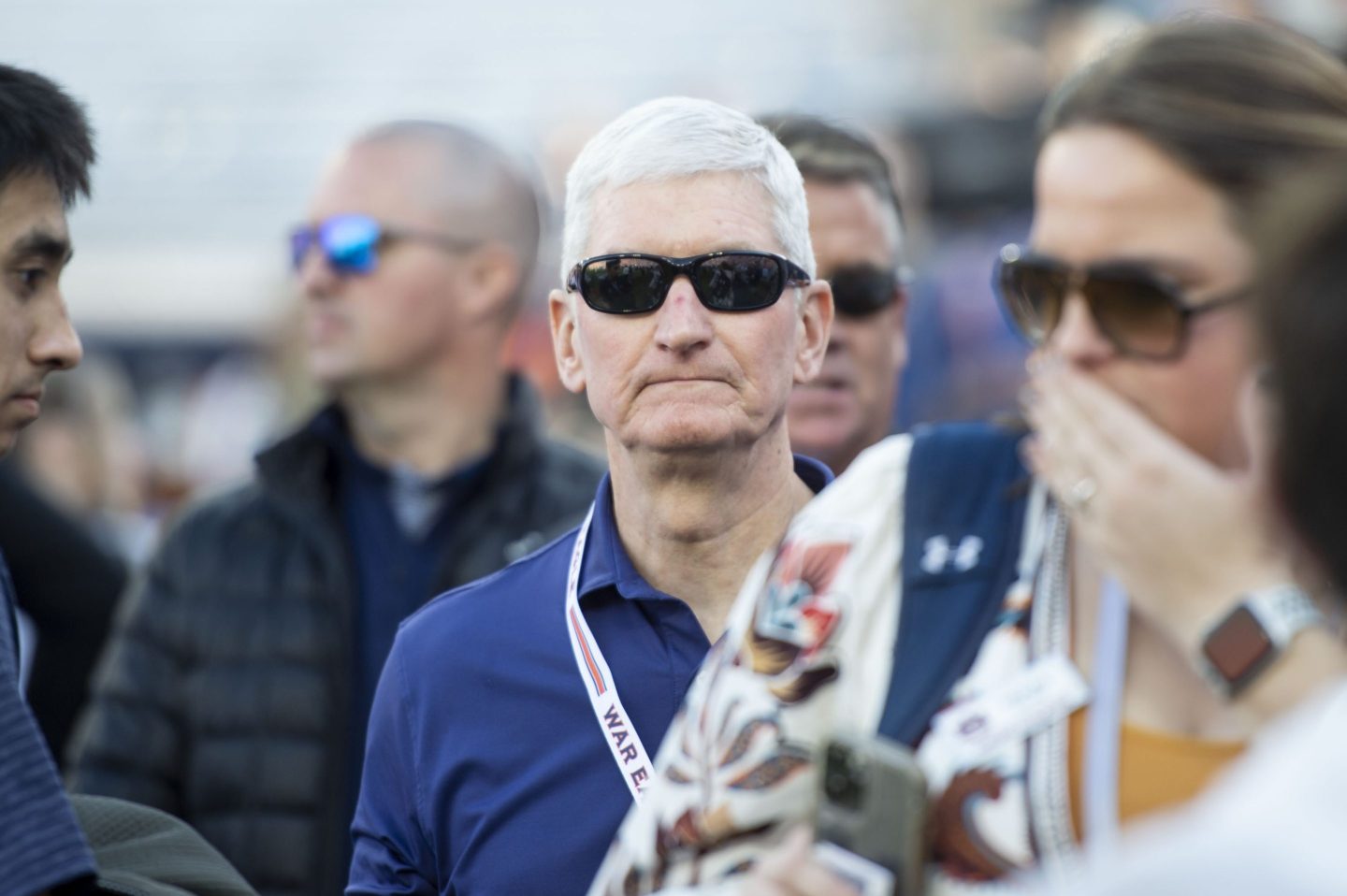Hello, tech editor Alexei Oreskovic here. The year 2024 is off to a tough start for Apple. In the day-and-a-half that the stock market has been open this year, the iPhone maker’s stock has fallen by nearly 5%.
If the decline holds by the time the market closes Wednesday, that will represent a loss of more than $120 billion in market value in just two days. Two very expensive days.
The immediate cause of the drubbing was a downgrade by Barclays on Tuesday, hitting Apple’s stock with an “underweight” rating (analyst-speak for “sell”). The downgrade was a manifestation of deeper investor unease with the company’s prospects.
Apple’s overall revenue has declined for four consecutive quarters, and the company has hinted at modest expectations for holiday sales. The iPhone, which accounts for nearly half of Apple’s revenue, is facing stiffer competition in China, and the Apple Watch is locked in a patent fight that forced Apple to halt sales of certain models in the U.S. for a few days last year.
If things look bleak for the Cupertino, Calif., company, there are a few bright spots on the horizon:
Apple’s services business continues to be an underappreciated giant. According to Apple bull Dan Ives’s “sum of the parts” analysis, the services business is worth $1.5 trillion to $1.6 trillion on a standalone basis.
The VisionPro, Apple’s $3,500 mixed reality headset, is due to go on sale this year. The company is treading cautiously with a very limited rollout of the new device—so sales of the VisionPro this year will not move the needle for Apple. But if consumers cotton to the device, it could provide a much-needed jolt of excitement to Apple’s image that translates into broader sales.
Finally, Apple has yet to show its cards in the high-stakes game of generative AI. According to Bloomberg’s Mark Gurman, Apple has developed its own large language model and has been internally testing an “Apple GPT” chatbot based on it for months.
If there’s any doubt about how gaga Wall Street is for AI right now, just look at Microsoft’s fortunes last year as it hooked up with ChatGPT-maker OpenAI: Microsoft’s stock finished 2023 up 50%.
With that, here are more of today’s top tech stories.
Alexei Oreskovic
Want to send thoughts or suggestions to Data Sheet? Drop a line here.
Today’s edition was curated by Rachyl Jones.
NEWSWORTHY
Intel spins off AI. Chip manufacturer Intel is forming a new artificial intelligence company backed by asset manager DigitalBridge, Reuters reports. The initiative, called Articul8 AI, will build out the AI technologies Intel began working on internally, including a generative AI system that can read text and images. Arun Subramaniyan, Intel’s former data center and AI head, will become chief executive of the new company.
Phoning from space. Elon Musk’s SpaceX launched a Falcon 9 rocket on Tuesday carrying six satellites that can offer mobile phone services to remote phone users in the U.S., Bloomberg reports. In partnership with T-Mobile, the initiative allows for greater access to text services on users’ existing phones in locations where cell towers may not be accessible.
Israel’s tech investment pitch. Israel’s innovation agency has urged private investors to fund the country’s tech sector, which has seen increased caution from investors since the start of the Israel-Hamas war, the Financial Times reports. The tech industry accounts for 18% of Israel’s economic output and 12% of jobs. The Israeli government has already set aside $100 million to aid startups on the verge of running out of money.
ON THIS DAY IN TECH HISTORY
On Jan. 3, 2009, the Bitcoin creator (using the presumed pseudonym Satoshi Nakamoto) mined the first 50 bitcoins—the first block of the blockchain—six days before the cryptocurrency network launched.
IN CASE YOU MISSED IT
Apple broke a 12-year tradition in 2023 and it has to do with iPads, by Chris Morris
Google settles lawsuit accusing it of spying on people in ‘incognito’ mode for $5 billion, by the Associated Press
Elon Musk’s X just made a major reversal by restoring news headlines in user posts after months of complaints, by Kurt Wagner and Bloomberg
BEFORE YOU GO
Cheaper gold check marks. Elon Musk’s X, formerly known as Twitter, has rolled out a new subscription tier for organizations that want the gold verification checkmark and other perks, the Verge reports. The new basic tier, intended for small businesses, is selling for $200 per month or $2,000 per year. In addition to the gold badge on a company’s profile, the status provides advertising credits and priority support services. X also sells a $1,000-per-month verification service for larger organizations.
Since Musk bought the company in October 2022, he has been working to expand its revenue beyond advertising and into subscriptions, but the efforts appear to have fallen short thus far. As we discussed in yesterday's newsletter, Fidelity marked the company’s value down more than 70% from its acquisition price, per Axios.
This is the web version of Data Sheet, a daily newsletter on the business of tech. Sign up to get it delivered free to your inbox.













